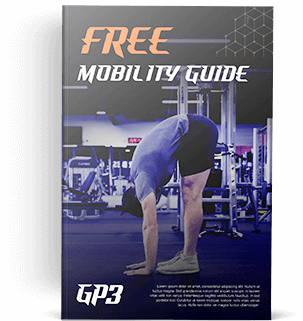Key Points:
1. Defining “health” is personal, subjective, AND objective. This makes it tricky.
2. My definition involves happiness, pain levels, physical capabilities, and traditional metabolic markers.
3. Happiness is the most important one, metabolic markers, the least.
Estimated Reading Time: 3-6 minutes
Listen to this article on Spotify!
Defining “health” is somewhat of a fraught topic these days, but I’m going to dive in anyway. Too many misinformed people make health into a black and white, right or wrong categorization. So, right off the bat, I’m going to let it be known that using a binary “good/bad” or “healthy/unhealthy” system to categorize anything makes me a bit uncomfortable.
However, a major part of my job involves being paid to help others be “healthier,” so it’s probably useful to at least attempt to answer what the heck I think that means. I’m going to explain how I view this topic shortly, but first we’re going to explore why this issue is difficult in the first place.
Want to sound like a judgmental jerk? Call someone unhealthy!
It’s quite common to see activities, foods, and even people branded as “unhealthy.” This happens frequently whenever the Health At Every Size or Fat Acceptance movements are brought up, and it’s usually for the purpose of disparaging someone who happens to have a higher body fat percentage than the societal ideal.
Labeling someone or something as “unhealthy” is an easy way to communicate disapproval of a lifestyle, physique, nutritional choice, or almost anything else one feels inclined to judge. Leaving aside the obvious solution that we are typically served best by keeping our mouths shut instead of judging others, there’s another problem.
When someone throws around the label “unhealthy,” it’s hard to argue with them because it’s so subjective. If their definition of what constitutes “healthy,” does not mesh with yours, a silly and unwinnable argument ensues, where both sides speak past each other and no common ground is even sought, let alone found.
What to do instead…
So, this is my attempt to propose some of that elusive common ground. Many people seem to agree that being healthy entails more than “the absence of disease,” but what else it means is a bit murkier. I’m going to propose four criteria in determining whether or not a given person is “healthy.” Now, I want to make very clear what I am not doing. I am not casting judgment upon anyone who does or does not happen to meet my subjective criteria of health.
Too many people today use “healthy” as a shorthand for some kind of moral purity or worthiness, and I think that’s BS. So, I’m not going to do it. Plus, all the criteria I list here will be actionable. Some of them will be easier to change than others, and some have a high degree of genetic luck factored in. But, they can all be improved to at least some degree with time, knowledge, and effort. Here goes nothing…
1. Are you happy?
We’ve made a great deal of progress in no longer completely separating mental and physical health, but there’s still a ways to go on that front. With that in mind, I put this one first, because I do think it’s the most important. True health without happiness seems, in my opinion at least, extremely difficult to sustain.
While this particular piece of the health puzzle may be arguably the most difficult to change, that doesn’t necessarily make it less important. Staying in a job, relationship, or even city that makes you miserable is going to have detrimental effects on your health. The stress and strain simply aren’t worth it.
If you find yourself in a similarly undesirable situation, there are at least places to start. Happiness has been highly correlated with autonomy, so even knowing that you’re going to actively do something about your situation can make it look a little brighter. If you can’t or don’t currently feel able to change careers, partners, or residences, beginning with something simple like journaling or meditation can be quite powerful. Even the realization, “I am not my thoughts,” can begin to turn the tide.
And finally, if you’re truly, undeniably happy with the situation you’re in, nothing else really matters, does it?
2. Are you able to complete your normal activities of daily living easily and with little to no pain?
Now we enter the more traditional domain of health, physicality. This one is a bit more cut and dried, and hopefully, less arguable. I don’t think it’s too much of a stretch to say that if you’re currently unable to brush your teeth, get dressed, or climb a flight of stairs pain-free, you have some things to work on. Unless, in keeping with principle number one, you’re happy. In which case, move along, nothing to see here.
However, for most people, not being able to complete those activities pain-free is a source of significant distress. Luckily, this is where matters can become a bit more easily changeable. Some simple but challenging bodyweight exercises, (like, shameless plug alert, the ones contained in my Free Mobility Guide) can work wonders.
Finally, I want to be clear that I’m primarily referring to abilities one used to possess, but due to pain, no longer does. Whatever your particular activities of daily living are, those are the ones I’m talking about. If pain is negatively affecting your day-to-day life, it should probably be a priority to change that.
3. Can you push yourself, whatever that means to you, without risking death or major injury?
The key point here is, “whatever that means to you.” Let’s use some examples to illustrate. For me, this mainly means being able to play as hard as I can for a full 90-minute soccer game, rock climb for 1-2 hours, and complete strenuous strength training and conditioning workouts. I want to be able to undergo these challenging activities at a degree of intensity that leaves me moderately tired to exhausted when I’m done, possibly sore for a day or two, but otherwise okay.
What “pushing yourself” means to you may be at least a little different, and that’s great! The beauty of this is that we all get to choose. Perhaps you simply want to be able to keep up with your friends on a tough hike. Or, maybe you want to set a PR in an ultramarathon. It doesn’t matter if someone else finds your standard “too easy” or “impossibly hard,” what matters is what you want. And, the best part is, whatever you choose, you can improve your ability to do it through training.
Let’s look at an example:
Take two people, one who wants to run their first marathon, and another who likes running 3k races.
Perhaps the first individual, “Person A,” can run 10k no problem, but if they tried the marathon they’re aiming to complete right now, they’d be at severe risk of a stress fracture. The second individual, “Person B,” would have no chance of finishing a marathon without an injury or heart attack, but they’re perfectly fine after their 3k races.
Even though Person A may have “better” cardiovascular fitness than Person B, they’re farther away from this system’s standard of health, because they are not currently able to do something that they want to be able to do.
I also want to stress that the previous statement is made with 100% detached objectivity. There is no judgment there, whatsoever. It’s simply an observation.
Finally, I’m a fan of this particular piece of the system because it forces you to listen to your body. If you want to play basketball for two hours a day, six days per week, but you’re always dealing with sprained ankles, shin splits, and excess fatigue, that’s probably not the healthiest thing for you to do. But this way, you can’t lie to yourself by saying, “Of course I’m healthy! I play basketball six days a week!” Yes, you do. But, it causes you so much pain that something should probably change.
4. Do your metabolic health markers indicate that you’re not in immediate danger?
We’ve arrived at the most measurable of the four criteria. And, I must admit, this one is my least favorite. Cholesterol, blood pressure, A1C levels, and other such metrics are important, but they’re also hugely influenced by uncontrollable genetic factors.
Take cholesterol, for example. If 200 or lower is “good,” does this mean 202 is “bad” and 198 is “perfectly fine?” They’re a measly 4 points apart. Not much room for nuance there.
The same goes for blood pressure. “Healthy” is considered 120/80. Or, maybe now it’s 110/70. I deliberately didn’t look it up, because the fact that it recently changed supports my point. Is someone whose blood pressure sits at 115/75 “unhealthy?” Well, 20 years ago, no. Today…maybe a little bit? Regardless, I believe these metrics are much more useful at a macro than a micro level. What do I mean?
Well, if your blood pressure is legitimately 180/110, you’re not healthy. In fact, you’re at imminent risk of a heart attack. According to the FDA, you’re in the midst of what is considered “hypertensive crisis,” and you should seek medical attention immediately.
The point is, all of these metrics provide useful data. They can point you in the direction of what may need to change, or what you may need to at least be aware of. But, unless they’re off the charts, numbers can’t truly define you as healthy or unhealthy.
Where does this leave us?
I would strongly argue that no single metric or standard can classify you as “healthy” or “unhealthy” outright. Even within this system I created, I’m not comfortable saying that someone who only meets 2 of the 4 criteria is “definitely unhealthy,” and that someone who meets all 4 is “definitely healthy.”
I simply wanted to paint a more complete picture, and let you know what that nebulous concept of “healthy” means for me and those I help. Hopefully it resonated with you, but if not, let me know how you differ. Let’s see if we can find some common ground!
Before you go, I’d love to hear from you! Comment below or send me an email and let me know…did you mostly agree or disagree with the system I created? Also, what does health mean to you?

